Misogyny and sexual misconduct in the
Entertainment industry aren’t anything new.
From the Harvey Weinstein scandal to Kesha’s legal battle with Lukasz Sebastian Gottwald, or “Dr. Luke,” women in the entertainment and music industry have always faced sexism and the frustration that comes along with it. When the
New York Times Presents documentary series released an episode about Britney Spears in February 2021, it sparked an important dialogue about the media's effect on a famous woman's personal and professional life. A
s more stories were revealed and documentaries were released, they showcased not only the media's cruel mistreatment of female celebrities but how the music industry played a major role as well.It is no secret that the entertainment industry is full of stories and incidents of harassment and violence. While the #MeToo movement has made it apparent that the pervasiveness of this colossal problem extends to different sectors, the entertainment and media industry has undeniably been most confronted with a series of revelations from many victims.
People were finally talking about female musicians and how men in the music industry mistreated them in the worst ways possible.The following is a list of famous female musicians who've been mistreated by the industry over the years.
#1 TLC
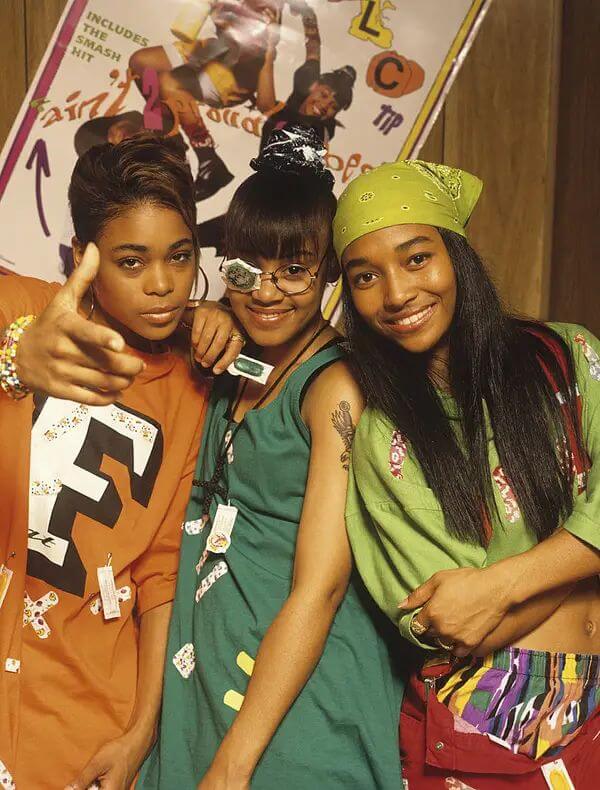 Source: Tim Roney / Getty Images
Source: Tim Roney / Getty Images
With four career Grammy Awards, five MTV Video Music Awards and five Soul Train Music Awards, Tionne “T-Boz” Watkins, Rozonda “Chilli” Thomas and the late, great Lisa “Left Eye” Lopes are legends in their field. However, despite their unmistakable presence in the R&B history books, T-Boz, Chilli & Left Eye all ended up filing for Chapter 11 bankruptcy on July 3, 1995, declaring debts of a whopping $3.5 million.
#2
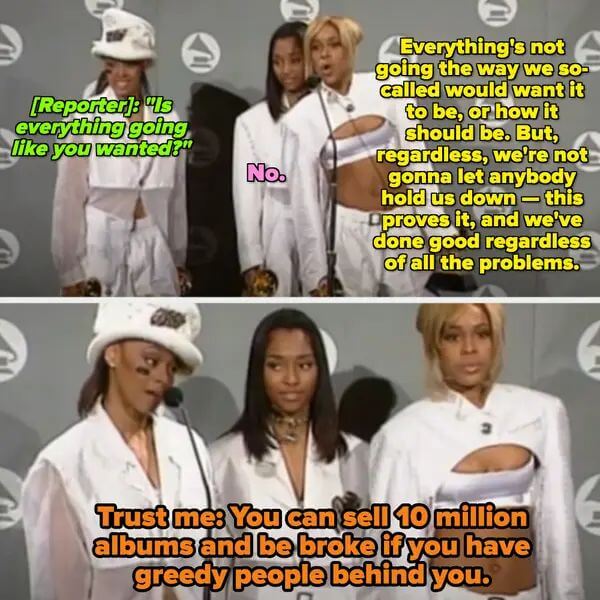 Source: CBS
Source: CBS
As it turns out, quite easily – provided you’re familiar with the sneaky pitfalls of a juicy Hollywood contract. The group maintained that they’d copped a pretty unfavorable deal concerning their contracts with both their manager Perri “Pebbles” Reid and their associated labels LaFace Records and Arista Records. The trio has received less than 1% of the estimated $175 million in revenues that the group's music has generated around the world.
#3 Diana Ross
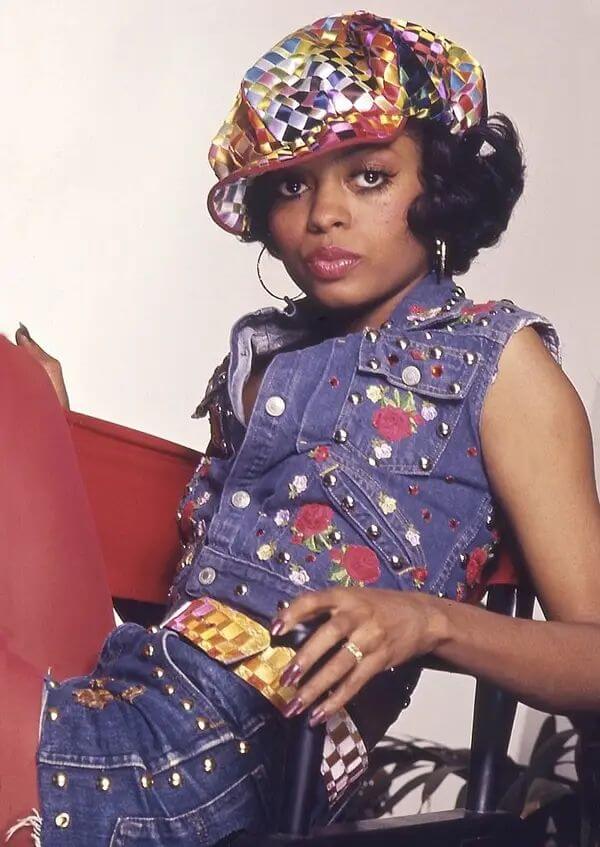 Source: Harry Langdon / Getty Images
Source: Harry Langdon / Getty Images
After her six-decade-long career and pioneering efforts that have shaped the landscape of music today, Ross hasn't received any major accolades. The artist behind huge hits like "I'm Coming Out," "Ain't No Mountain High Enough," and "Endless Love" has never received a Grammy award — she also hasn't been inducted into the Rock and Roll Hall of Fame as a solo act.
#4
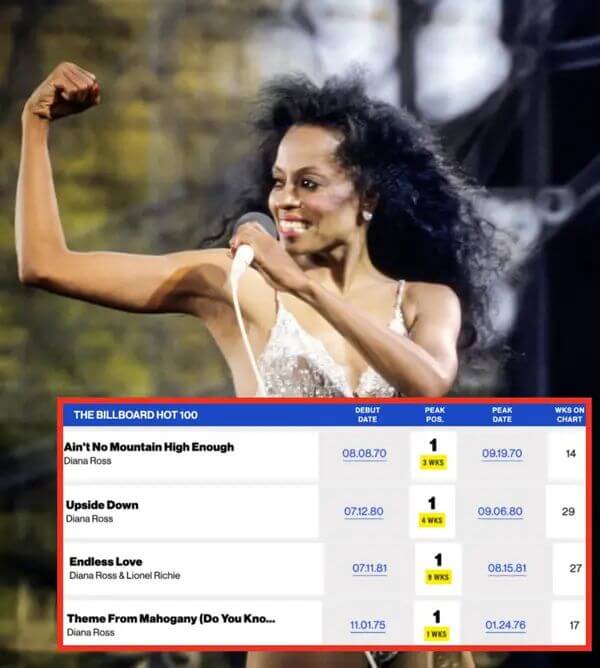 Source: Jack Vartoogian / Getty Images
Source: Jack Vartoogian / Getty Images
After her six-decade-long career and pioneering efforts that have shaped the landscape of music today, Ross hasn't received any major accolades. The artist behind huge hits like "I'm Coming Out," "Ain't No Mountain High Enough," and "Endless Love" has never received a Grammy award — she also hasn't been inducted into the Rock and Roll Hall of Fame as a solo act.
#5 Darlene Love
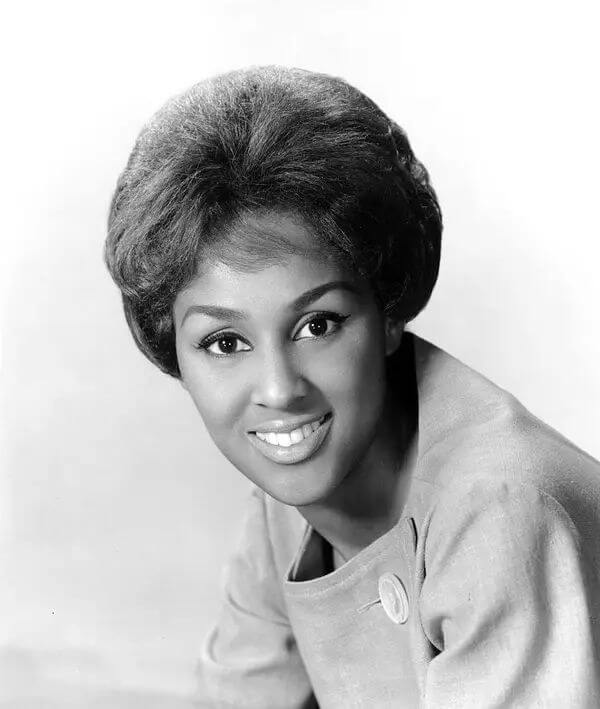 Source: Michael Ochs Archives / Getty Images
Source: Michael Ochs Archives / Getty Images
Darlene Love was one of the building blocks of music producer Phil Spector's girl-group sound. While a backup singer with The Blossoms, Love sang background vocals on some of the biggest hits of the 1960s, including "Da Doo Ron Ron" and "Johnny Angel." She also sang lead on several songs, including "Zip-a-Dee-Doo-Dah," "Christmas (Baby Please Come Home) and "Today I Met The Boy I'm Gonna Marry."
#6
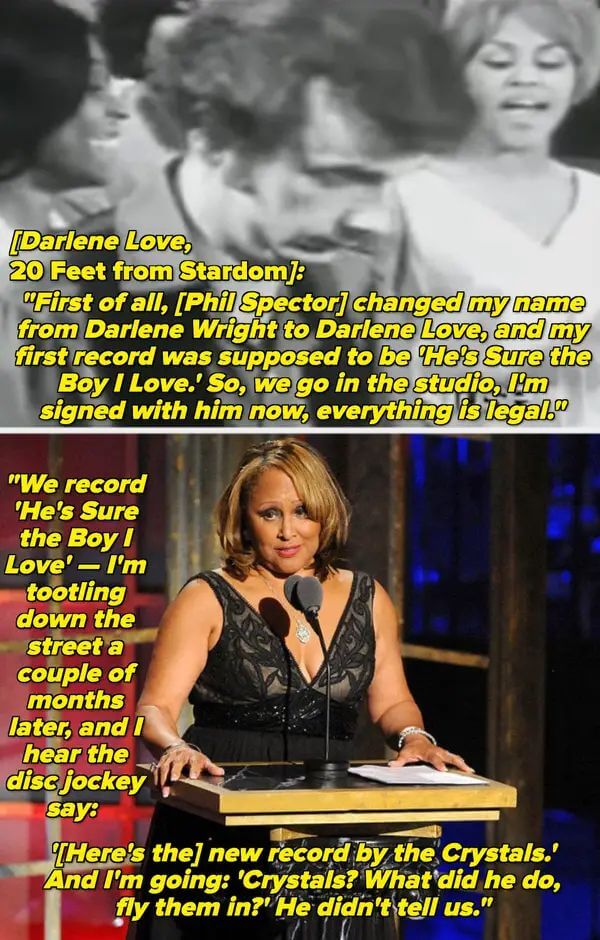 Source: Jeff Kravitz / Getty Images
Source: Jeff Kravitz / Getty Images
But music producer Phil Spector never put her name on the records — instead, he put the name of a girl group, The Crystals, on Love's songs. She didn't receive any royalties for her chart-topping work but finally received recognition in the industry in the 2010s.
#7 Ronnie Spector
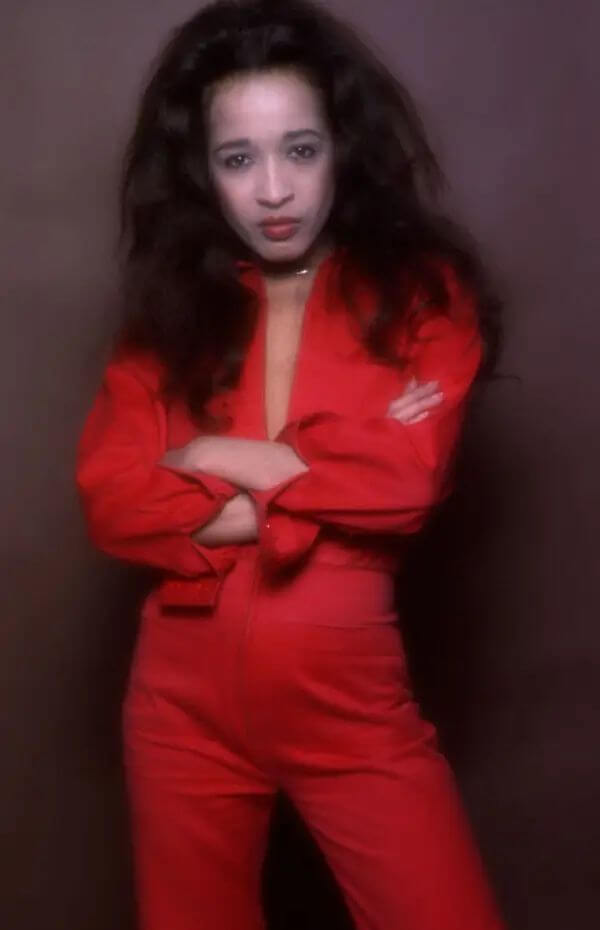 Source: Anthony Barboza / Getty Images
Source: Anthony Barboza / Getty Images
Phil and Ronnie Spector were married in 1968. However, Phil was an abusive husband prone to eccentric behavior; as Ronnie wrote in her memoir, Phil had a coffin in the basement of their mansion, a threat that he would kill her if she ever left him. In 1972, she escaped Phil’s mansion barefoot with the help of her mother, she wrote in her memoir.
#8
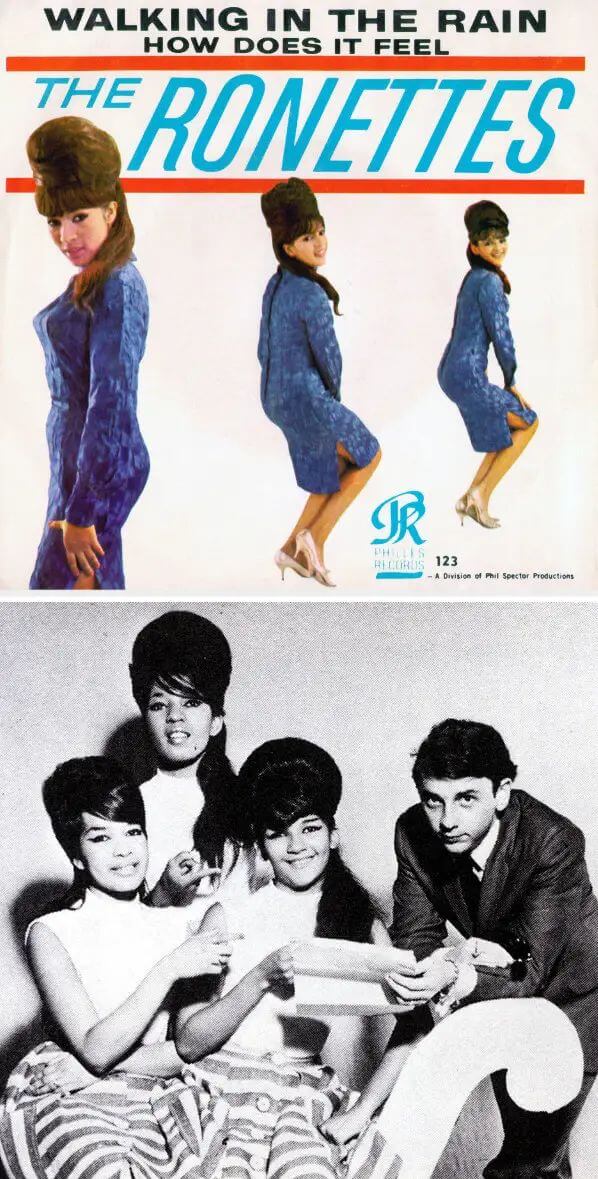 Source: Michael Ochs Archives / Getty Images
Source: Michael Ochs Archives / Getty Images
Her career deteriorated during their marriage because of his horrific behavior, mainly because she couldn't leave the house. Phil also destroyed the potential career of the Ronettes by withholding contractually obligated recordings. Spector refused to let Ronnie go on tour with the Beatles and forced her to stay in California while a previous member sang lead.
#9 Jojo
 Source: Stephen Lovekin / FilmMagic / Getty Images
Source: Stephen Lovekin / FilmMagic / Getty Images
JoJo's first two albums, JoJo and The High Road, weren't available to stream anywhere because her former labels, Blackground Records and Da Family, withheld her music. JoJo filed a lawsuit against them in 2009 because she was only 12 years old when she signed her record contract. In 2014, pop star JoJo broke free from her contract with Blackground Records, ending a Behind the Music–worthy, nearly-decade-long legal battle.
#10
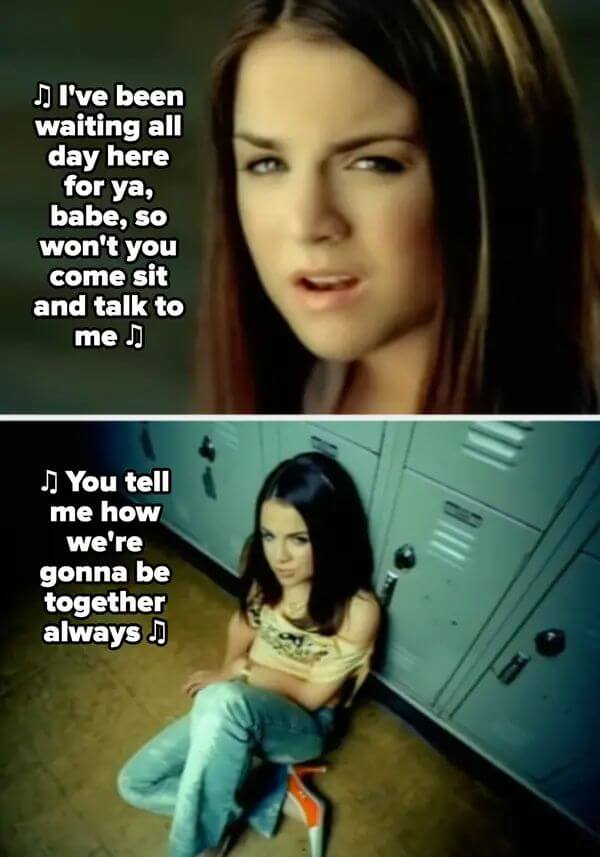 Source: Blackground / Da Family
Source: Blackground / Da Family
#11 Martha Wash
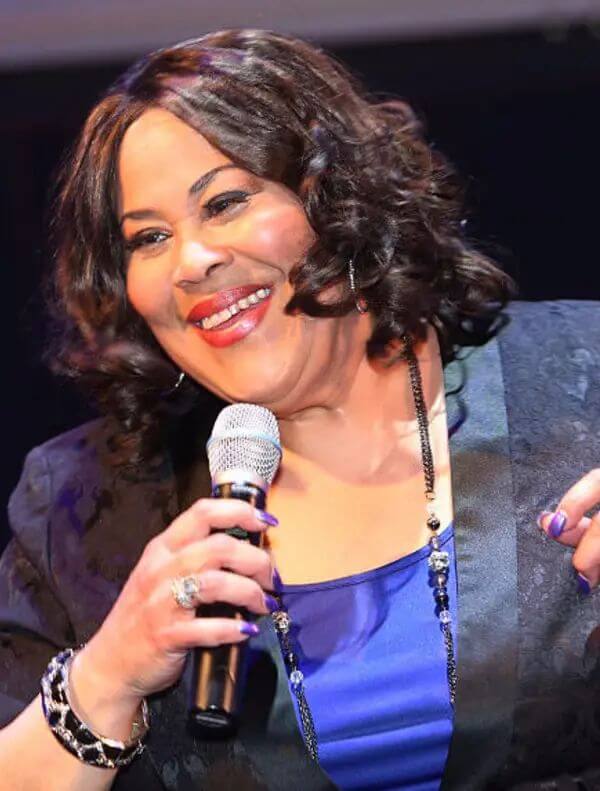 Source: Monica Morgan / WireImage / Getty Images
Source: Monica Morgan / WireImage / Getty Images
Wash is very likely the most famous unknown singer of the Nineties; a powerful, gospel-weaned belter who first earned fame as a backup singer for disco king Sylvester before forming the disco-pop duo the Weather Girls and recording the camp classic “It’s Raining Men.”
#12
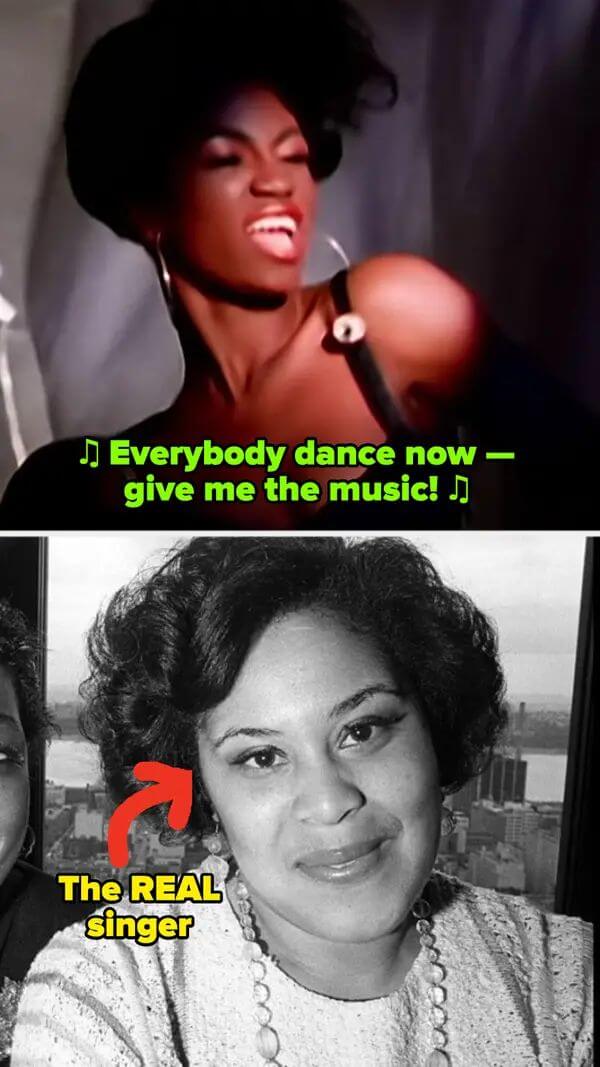 Source: Columbia / David Corio / Getty Images
Source: Columbia / David Corio / Getty Images
In September 1990, American singer Martha Wash sued Black Box and RCA Records for commercial appropriation after she became aware of the lip-sync scandal perpetrated by the group. During the recording session of their album Dreamland in 1989, Wash was recruited as a session singer to simply demo songs produced by Black Box. Unbeknownst to her, Black Box retained Wash's vocals on a total of six songs, including "Everybody Everybody", "Open Your Eyes", "Hold On", "I Don't Know Anybody Else", "Strike It Up", and "Fantasy" on the album Dreamland. Despite Wash's contributions to the songs, Black Box never credited her for her vocals and instead used Quinol to lip-sync Wash's vocals during music videos, televised performances, and concert performances.
#13 Yoko Ono
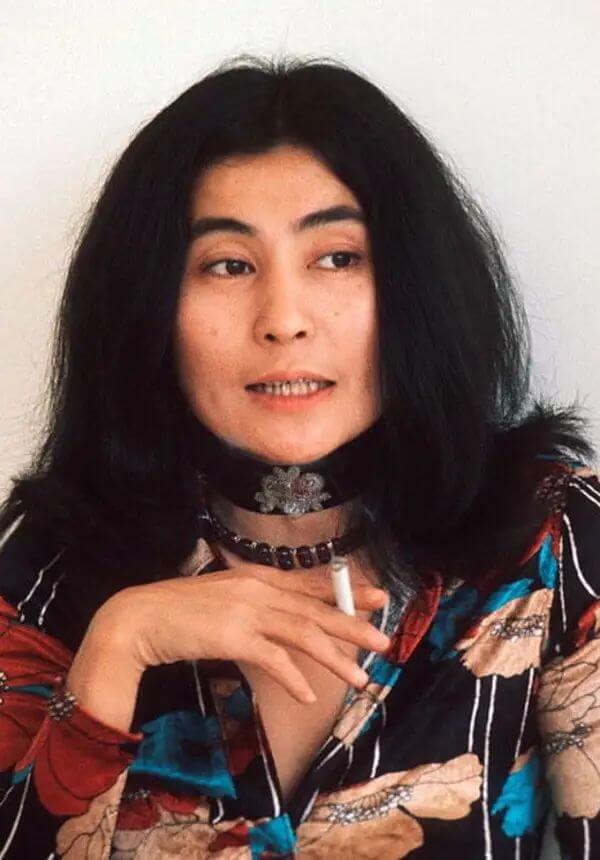 Source: Michael Putland / Getty Images
Source: Michael Putland / Getty Images
Yoko Ono co-wrote "Imagine" for John Lennon's 1971 album Imagine, but Lennon didn't give her songwriting credit. Ono finally received songwriting credit for "Imagine" in 2017 once it was learned that Lennon pulled the majority of the lyrics from her 1964 poetry book Grapefruit.
#14
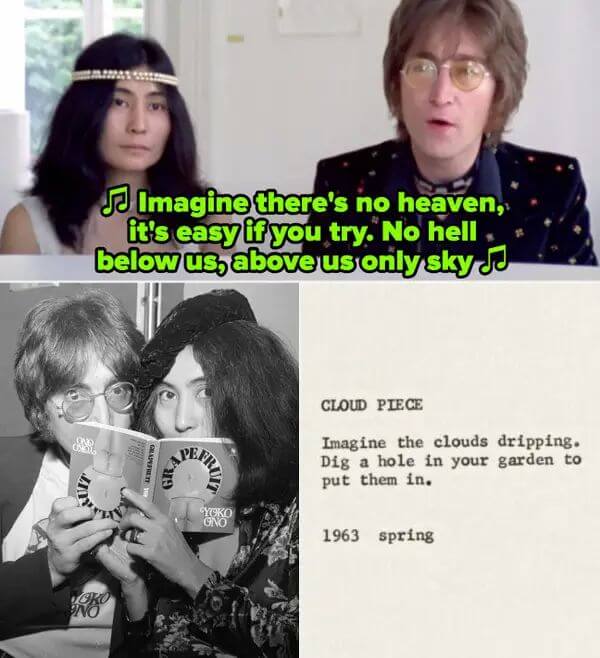 Source: @yokoono
Source: @yokoono
Looking at the original album, you can see John had no intention of masking Yoko’s inspiration. On the bottom left of the back cover, you find a quote from Grapefruit right there.
#15 Big Mama Thornton
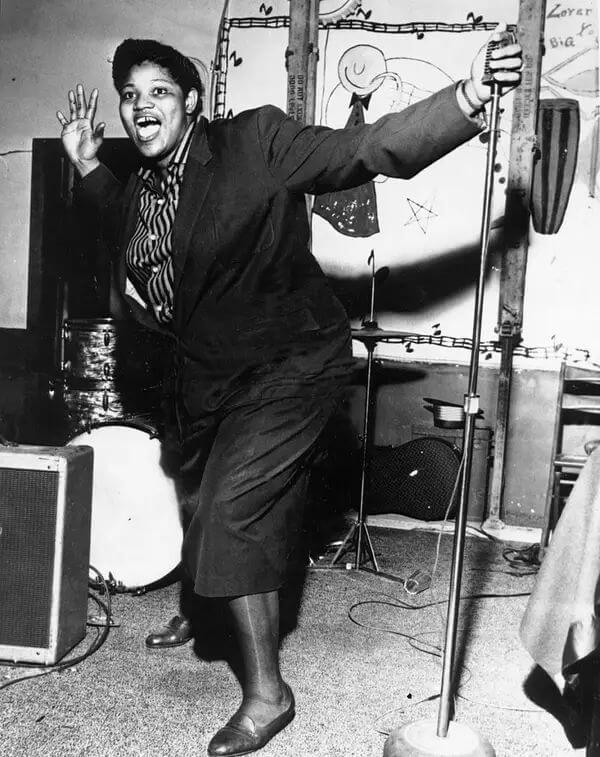 Source: Michael Ochs Archives / Getty Images
Source: Michael Ochs Archives / Getty Images
Elvis Presley got famous off of 'Hound Dog' in 1956. But the song was originally from Big Mama Thornton, which was released in 1953. It became one of the biggest songs in rock 'n' roll history only after he had stolen it. Thornton never received the credits or royalties that she deserved, only 100 dollars. She's yet to be inducted into the Rock and Roll Hall of Fame, which is strange, because she's the one responsible for shaping rock 'n' roll music
#16
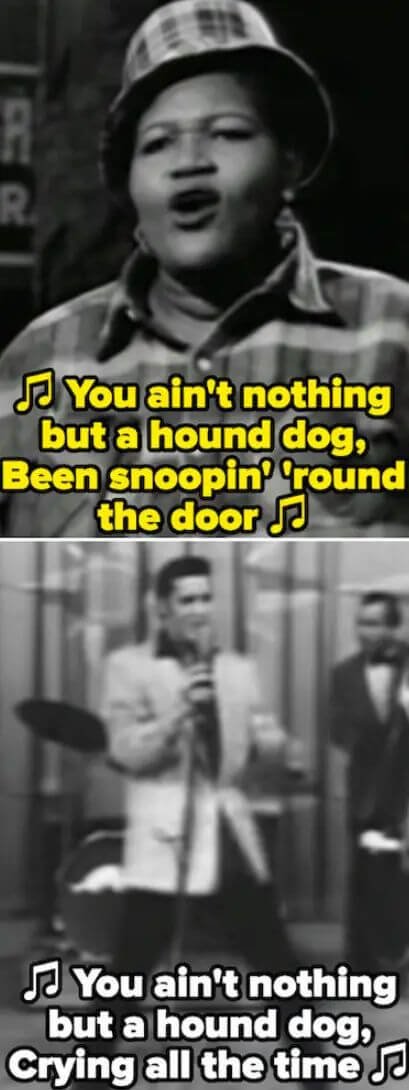 Source: UMG
Source: UMG
When asked how she felt about it, she replied, "I'm still here to spend my hundred bucks."
#17 Taylor Swift
 Source: Nbc Newswire / NBC Newswire / NBCUniversal via Getty Images
Source: Nbc Newswire / NBC Newswire / NBCUniversal via Getty Images
Scooter Braun’s Ithaca Holdings had acquired Scott Borchetta’s Big Machine Label Group. Swift signed her recording contract at the age of 15, and the deal she made with Big Machine gave them ownership of her master recordings, which entitled the company to her albums’ revenue streams and control of how the music was used. Big Machine held her career’s recordings from her self-titled album to 2017’s Reputation. Swift has since signed to label Republic Records and has been re-recording her albums that were initially released on Big Machine.
#18 Kesha
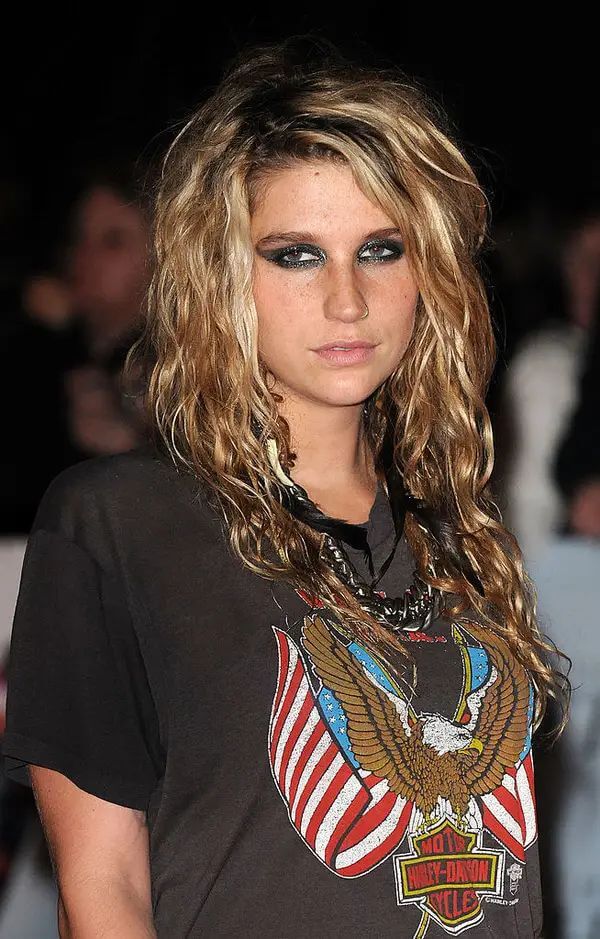 Source: Eamonn Mccormack / WireImage / Getty Images
Source: Eamonn Mccormack / WireImage / Getty Images
In 2014, Kesha sued producer Dr. Luke, seeking to void all their contracts because Dr. Luke sexually, physically, verbally, and emotionally abused Kesha to the point where she nearly lost her life. Dr. Luke countersued shortly after.
#19
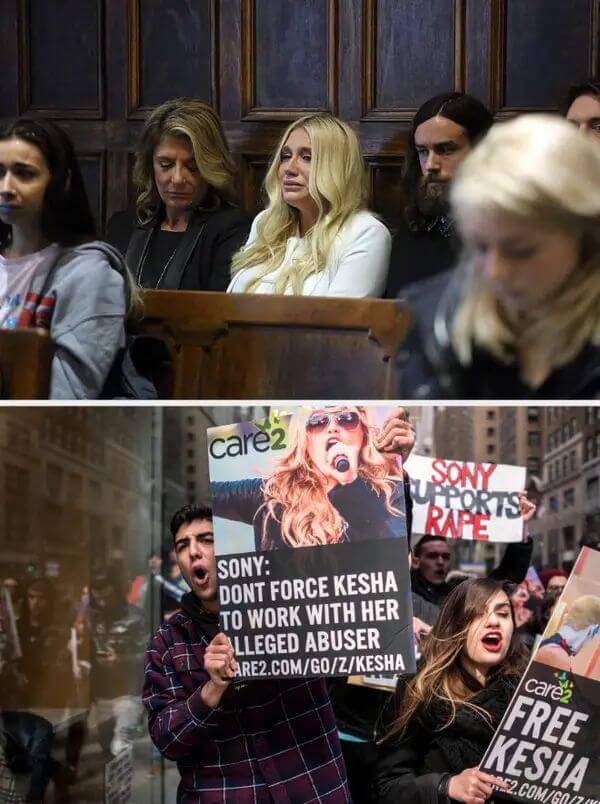 Source: New York Daily News Archive / Benjamin Lowy / Getty Images
Source: New York Daily News Archive / Benjamin Lowy / Getty Images
Both lawsuits are yet to be resolved.
#20 Aaliyah
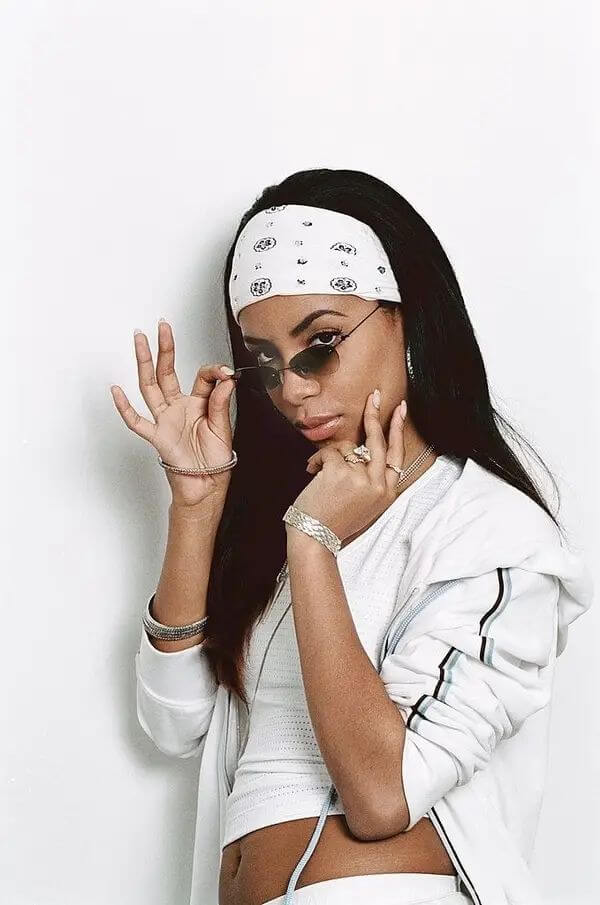 Source: Sal Idriss / Redferns / Getty Images
Source: Sal Idriss / Redferns / Getty Images
R. Kelly sexually abused the late R&B singer Aaliyah when she was 13 or 14 years old. R. Kelly was introduced to Aaliyah and became her mentor, as well as lead songwriter and producer on her debut album. Prosecutors claim that Kelly was having sexual contact with Aaliyah and may have impregnated her while she was a minor; he then illegally married her. Although some of the specifics are only coming out now in the courtroom, Kelly and Aaliyah’s relationship was an open secret, and their marriage made headlines at the time.
#21
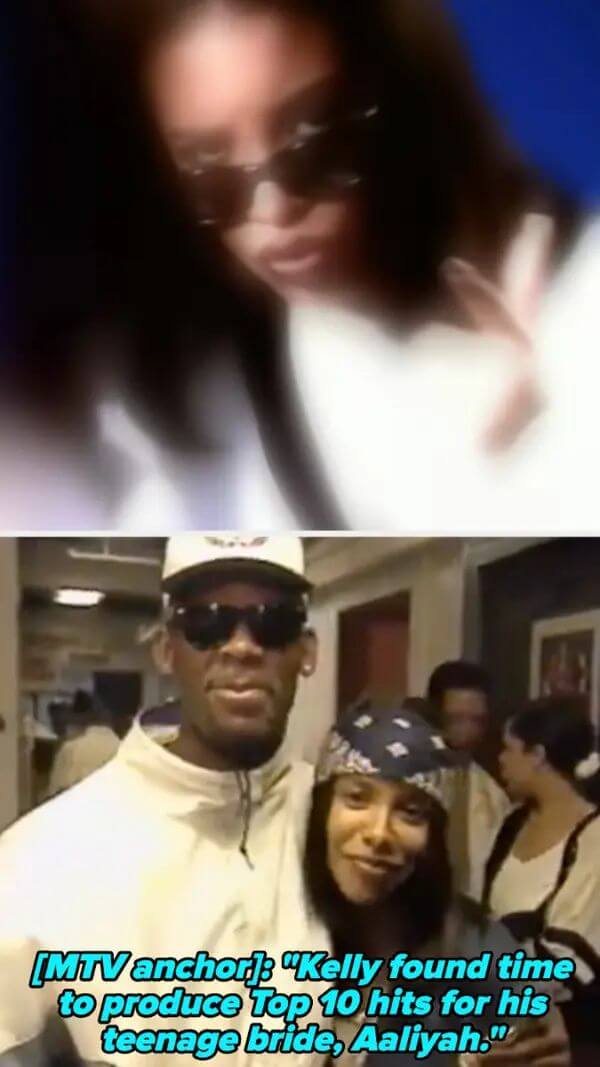 Source: Blackground
Source: Blackground
From the vantage point of 2021, it is hard to imagine how a sexual-abuse scandal involving two of the biggest names in popular music would not derail the alleged abuser’s career. But Kelly thrived as an artist and producer in the years that followed; he would go on to sell a total of more than a hundred million records, including his own and those he crafted for other artists.
#22 Jane Jackson
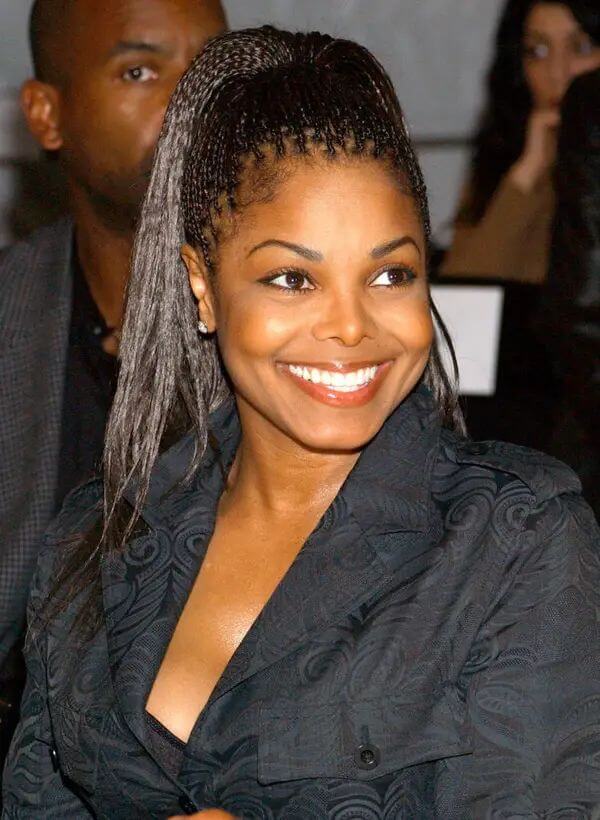 Source: Arun Nevader / WireImage / Getty Images
Source: Arun Nevader / WireImage / Getty Images
The Grammys banned Janet Jackson from singing at the awards in 2004 because of her Super Bowl XXXVIII wardrobe incident with
Justin Timberlake. Timberlake instead suffered zero consequences and was able to perform at the awards that year.
#23
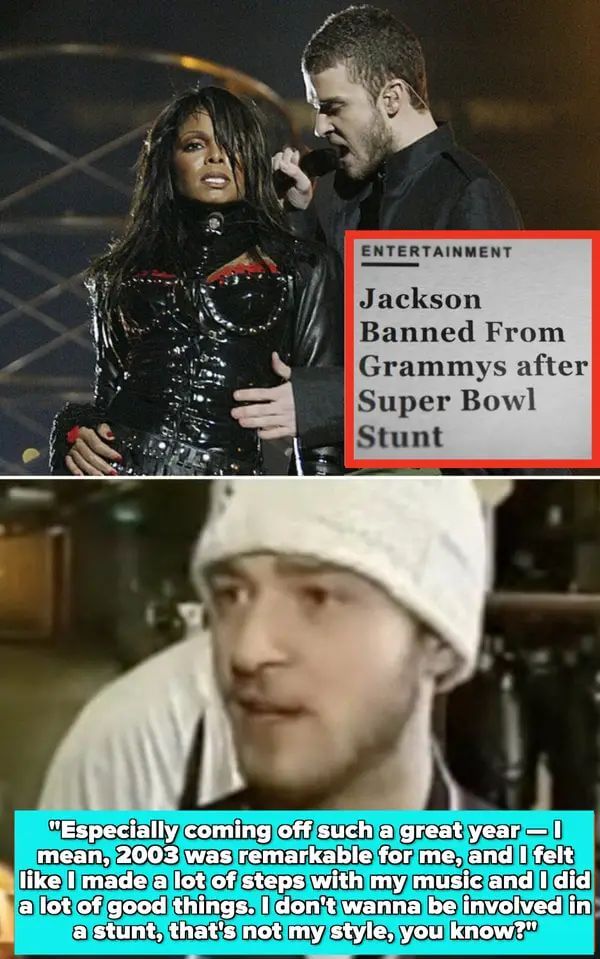 Source: Frank Micelotta / Getty Images
Source: Frank Micelotta / Getty Images
Jackson's career tanked not long after, with MTV refusing to air her music in 2004. Jackson had to do damage control by "apologizing for her behavior" while Timberlake's career continued to thrive.
#24 The Chicks
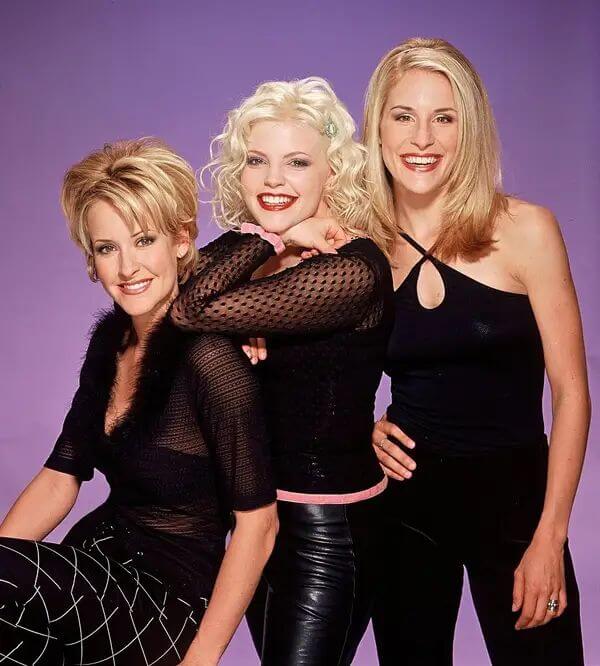 Source: Harry Langdon / Getty Images
Source: Harry Langdon / Getty Images
Previously known as the Dixie Chicks, they publicly criticized President George W. Bush and the imminent Allied invasion of Iraq, triggering a backlash. Singer Natalie Maines made the statement at a concert in London; she said the band were ashamed to be from the same state as Bush and that they did not support the war. At the time, the Dixie Chicks were one of the most popular American country acts.
#25
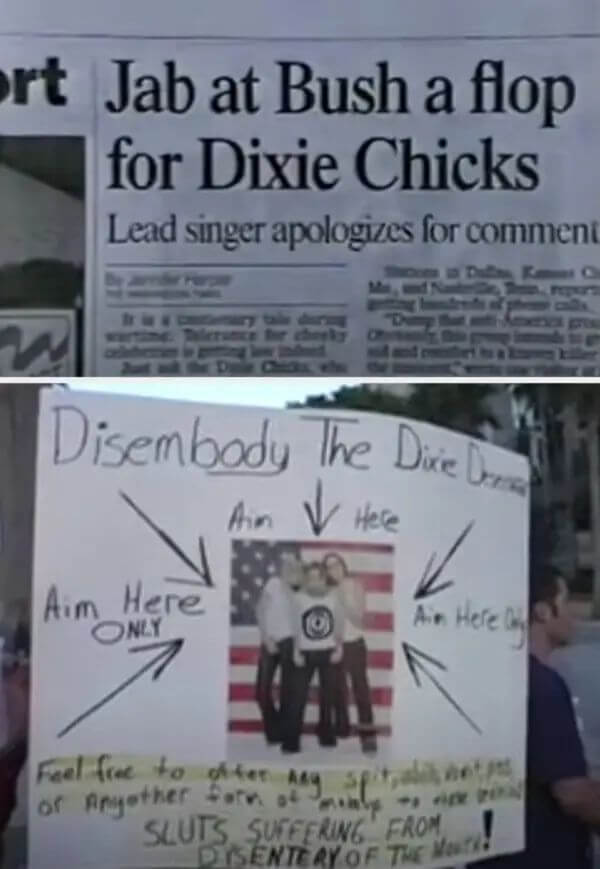 Source: ABC / Mold-a-Rama / Via youtube.com
Source: ABC / Mold-a-Rama / Via youtube.com
it led to backlash from American country listeners, who were mostly right-wing and supported the war. The Dixie Chicks were blacklisted by thousands of country radio stations, received death threats, and were criticized by other country musicians. The backlash damaged sales of the Dixie Chicks' music and concert tickets and lost them corporate sponsorship. Maines issued an apology, saying her remark had been disrespectful; in 2006, she rescinded the apology, saying she felt Bush deserved no respect.
 Source: Tim Roney / Getty Images
Source: Tim Roney / Getty Images Source: CBS
Source: CBS Source: Harry Langdon / Getty Images
Source: Harry Langdon / Getty Images Source: Jack Vartoogian / Getty Images
Source: Jack Vartoogian / Getty Images Source: Michael Ochs Archives / Getty Images
Source: Michael Ochs Archives / Getty Images Source: Jeff Kravitz / Getty Images
Source: Jeff Kravitz / Getty Images Source: Anthony Barboza / Getty Images
Source: Anthony Barboza / Getty Images Source: Michael Ochs Archives / Getty Images
Source: Michael Ochs Archives / Getty Images Source: Stephen Lovekin / FilmMagic / Getty Images
Source: Stephen Lovekin / FilmMagic / Getty Images Source: Blackground / Da Family
Source: Blackground / Da Family Source: Monica Morgan / WireImage / Getty Images
Source: Monica Morgan / WireImage / Getty Images Source: Columbia / David Corio / Getty Images
Source: Columbia / David Corio / Getty Images Source: Michael Putland / Getty Images
Source: Michael Putland / Getty Images Source: @yokoono
Source: @yokoono Source: Michael Ochs Archives / Getty Images
Source: Michael Ochs Archives / Getty Images Source: UMG
Source: UMG Source: Nbc Newswire / NBC Newswire / NBCUniversal via Getty Images
Source: Nbc Newswire / NBC Newswire / NBCUniversal via Getty Images Source: Eamonn Mccormack / WireImage / Getty Images
Source: Eamonn Mccormack / WireImage / Getty Images Source: New York Daily News Archive / Benjamin Lowy / Getty Images
Source: New York Daily News Archive / Benjamin Lowy / Getty Images Source: Sal Idriss / Redferns / Getty Images
Source: Sal Idriss / Redferns / Getty Images Source: Blackground
Source: Blackground Source: Arun Nevader / WireImage / Getty Images
Source: Arun Nevader / WireImage / Getty Images Source: Frank Micelotta / Getty Images
Source: Frank Micelotta / Getty Images Source: Harry Langdon / Getty Images
Source: Harry Langdon / Getty Images